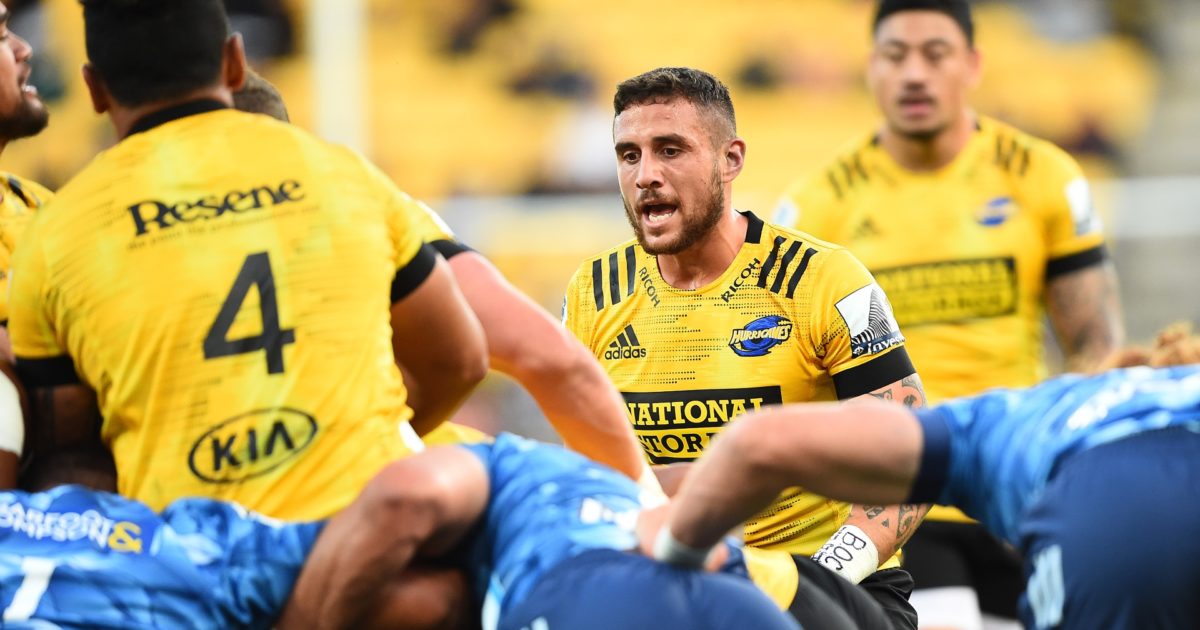Super Rugby Aotearoa unveil innovations, including golden point and red card replacements

Super Rugby in New Zealand is set to return on June 13 in Dunedin with a number of fresh innovations such a a golden point for tied matches, the replacement pdf red carded players and stricter application of the breakdown laws.
World Rugby last week published 10 law trial recommendations that could be adopted by an individual union to help rugby proceed safely during the Covid-19 era. These recommendations were not adopted by NZ rugby officials, officials believing there would be no safety concerns surrounding areas of the contact such as the scrum and maul.
However, with the countdown on towards the meeting of the Highlanders and the Chiefs at Forsyth Barr Stadium, which will be followed on June 14 by the Eden Park meeting of the Blues and the Hurricanes, two alternative measures have been adopted as well as a fresh commitment to help the game speak up around the breakdown.
“We want this competition to look and feel different. We’ve had great support from our coaches, players and referees to make Investec Super Rugby Aotearoa faster, safer and more exciting than ever before,” said New Zealand Rugby (NZR) head of professional rugby, Chris Lendrum.
If a match is tied after 80 minutes of regular time, the result will be decided by golden point. The first team to score – by drop goal, penalty kick, or try – during a ten-minute period of extra-time will take the win and earn four competition points.
“Draws can often leave everyone feeling a little empty and after feedback from our coaches and players we have added the golden point rule,” Lendrum said. “We’ve seen the excitement it can generate in other codes and we think adds a real edge.”
If a team loses via golden point, they can still earn bonus points for scoring three or more tries than the opposition in either regular time or extra time.
Points allocation:
- 4 competition points to the winning team;
- 1 competition point to the losing team;
- 2 competition points to each team if neither team scores during extra time;
- 1 competition point to any team scoring three tries or more than the opposition.
Switching to the red card initiative, players who receive a red card can be replaced with another player 20 minutes after they are sent from the field. The sent-off player cannot return to the field and will face SANZAAR’s existing judicial process. There is no change to the yellow card sanction.
“While players should, and still will be, punished for foul play, red cards can sometimes have too much of an effect on a match,” Lendrum said. “There are no winners when a player is red carded, but paying rugby fans, players and coaches want to see a fair contest. Replacing a player after 20 minutes strikes the right balance.”
As for quickening up the breakdown, NZR national referee manager Bryce Lawrence said the existing laws at the breakdown would be applied more strictly to create faster attacking ball and a fairer contest.
“Fans enjoy Investec Super Rugby because it’s a fantastic spectacle and our referees like to allow the game to flow. We’re confident we’ll see a contest that is faster, fairer, safer and easier to understand.
“We’re not changing the laws of the game, we’re being stricter about how we referee them.”
The key focal points for the SpecSavers referees at the breakdown are summarised below:
- Ball carriers will be allowed only one dynamic movement after being tackled.
- Crawling, or any secondary movement other than placing or passing, will be penalised;
- Tacklers will be expected to roll away immediately in the direction of the side-line. This will be a referee’s “number one priority” at the tackle;
- There will be “extra focus” on the offside line with defenders expected to be “clearly” onside to provide attacking teams more space.

























































